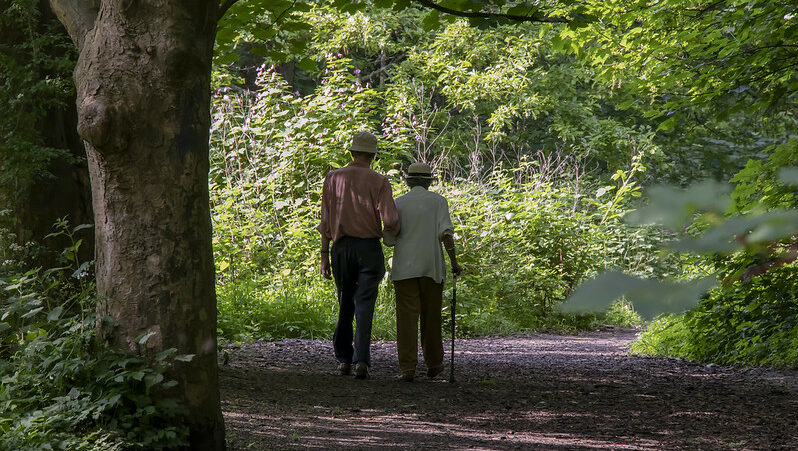The Covid-19 pandemic has revealed what we actually need to live well.
We have been starkly reminded of the importance of our health – both physical and mental. During lockdown, we have missed giving and receiving affection with friends and family who don’t live with us. We worry about the gap in our childrens’ schooling.
We might miss going to work, feeling like we have a purpose, and having the time or space to do the things we enjoy. We dislike our freedoms being constrained and feeling unable to influence the decision making of local and national governments.
These things are not surprising or new – our basic needs have always been there. What has changed is that the pandemic has pushed these needs to the front and centre, so that as a society and as individuals, we are more focused than ever on trying to meet them.
Physical distancing forced us to find new (and some old) ways of satisfying those needs. We found new ways of taking care of each other and showing our affection, and new ways of working. Many have felt a strengthened connection to their local neighbours and local environments.
As we move forwards, we should consider maintaining some of these new approaches to satisfying our needs, and we will certainly want to change others. But crucially, we now know we have the capacity to change the way we satisfy our needs – so that every individual has a decent standard of living, and we live safely within the environmental limits of our planet.
A wellbeing economy
Before the pandemic we had become too focused on the means by which we satisfy our needs, rather than on our needs themselves. At a personal level, we focused on increasing our income and wealth, whilst ignoring some of our core needs by working too much so we could consume things that don’t make us happy. At a societal level, we focused on increasing GDP, without realising that it is not possible to separate increased economic activity from increased environmental pressures.
Of course, stark reductions in income make the situation all the more dire. But it is not the lack of money in itself that is a problem, it is the fact that a lack of money can prevent us from satisfying our needs in our current economy. Lack of money can prevent us from buying food, paying rent or utilities, socialising with friends – the things we need to live well.
The key distinction is between our needs and the ways in which we fulfil those needs. In many ways, we can satisfy our needs with little or no money. That is what the NHS allows us to do in the UK when it comes to our physical and mental health. There is no reason why we could not structure our entire economy around delivering wellbeing for all.
If we want to build back better after the pandemic, to tackle the climate crisis alongside inequality and deprivation, it is clear that we must not go back to relying on our past methods of satisfying needs. They were leading us to stark social and environmental issues, with not enough progress being made in terms of emissions reductions or poverty reduction, for example.
Deepening our democracy
My own participatory research from last year with a community in Kirkstall, Leeds, showed that people identify as important the same basic needs that have become clear during the pandemic. Many of their suggested changes for their community coincide with what local councils and national governments are starting to implement now.
For instance, participants felt too much space was sacrificed for private cars, too much of their time is spent stressed from being overworked, and there are too few local institutions, with inadequate funding and support networks.
It is very telling of the power of economic priorities that it has taken a global pandemic to refocus on what we actually need, and for many governments around the world to change their priorities. If we truly want to build back better, we must not lose the wellbeing focus after the pandemic.
One way to ensure this is to deepen our democratic processes. This can allow citizens to have greater influence on our governments so that their decisions are prioritised according to wellbeing, instead of financial goals that distract from society’s main purpose.
There has already been significant progress on these fronts: processes such as citizens’ juries and assemblies at the city and national level are increasing the democratic input of ordinary citizens into decisions that will affect the way they satisfy their needs. And international alliances and commitments show how it is possible for local and national governments to make decisions based on broader criteria than just economic efficiency.
A majority of people want us to prioritise wellbeing over GDP, according to a recent YouGov poll. The time is ripe for decision-makers to start involving their citizens more meaningfully and start listening. A focus on wellbeing will ensure we do not lose sight of what is truly important, while finding out the best ways to get there, together.
Lina Brand-Correa is a postdoctoral research fellow at the Sustainability Research Institute, University of Leeds
